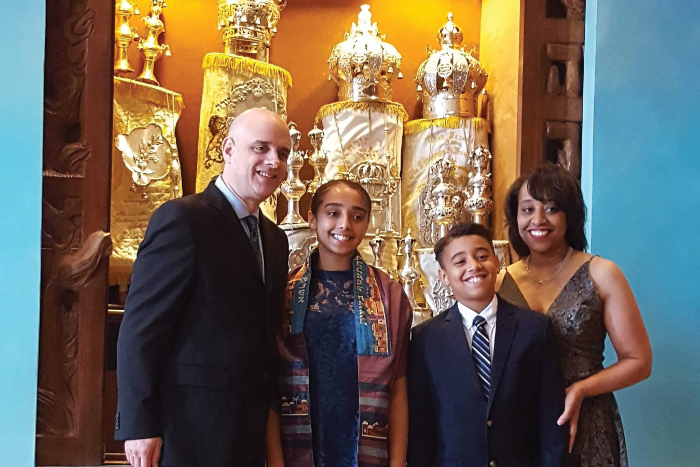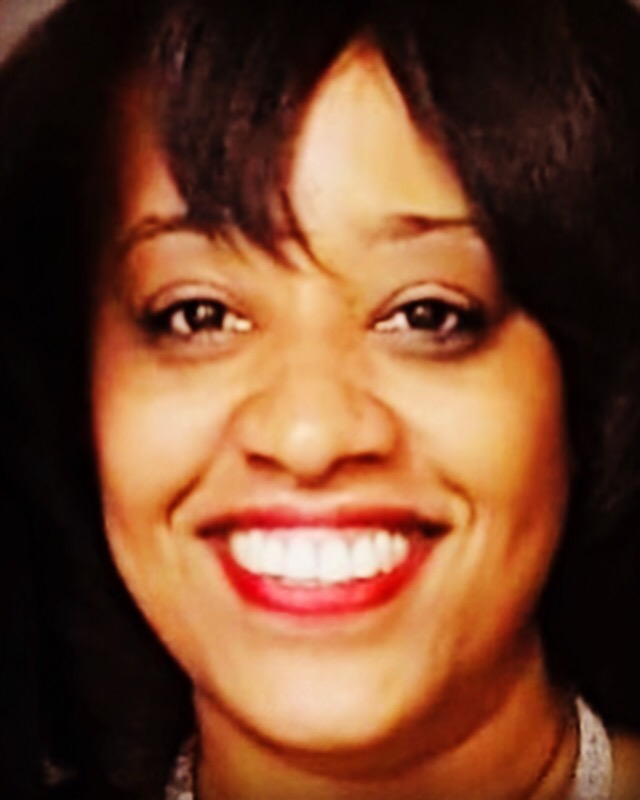
When I stepped out of the as a Black Jewish woman in September 1998, I knew my life was about to change. Being Black and Jewish has given me the strength to walk proudly. I have been asked on many occasions how I could be Jewish. I always respond to these questions because I believe that asking questions is a profound way to grow and learn.
I was not raised Jewish, so my Jewish journey and perspective are different from those who were brought up in a Jewish household. I love being Jewish, so when people find out that I am Jewish and begin to ask questions, it is a great opportunity to educate and tell my story. Being Black and Jewish has been a saving grace for my soul; it completes me. When I entered the Jewish community as a Black woman, I expected questions regarding my identity. With those questions came answers and apologies, and then people’s assumptions started to fade.
But it’s different for my children.
They were born Jewish, raised in a Jewish home, and they belong to a Jewish community. They have attended religious school since they were toddlers. They are both extremely aware of current events, such as racial and gender discrimination and the rise of antisemitism, and they are often questioned by their peers and some adults about their Jewish identity and background. You might think most adults would be sensitive to children’s feelings, but based on my children’s experiences, that’s not always the case.
Our son, who always speaks up about his Jewish identity, felt the need to stand up for himself one day while playing basketball with his friend (before COVID-19). His friend, who is also Jewish, excitedly introduced my son to his mom, saying, “Mom, this is my friend, and he is Jewish too.” His mother immediately responded, “No, he is not.” To prove his Jewish identity, my son recited prayers in Hebrew in front of his friend’s mother. When he came home that day and told me what happened, I was very upset, but once I got past my anger, I asked him how it made him feel. He looked at me and said, “I know I’m Jewish, and I’m very proud. I just needed her to understand that.”
My daughter has also had her share of questions from peers and even some of her teachers, especially in December. They incorrectly assume that she celebrates Christmas and other Christian holidays throughout the year, so she bluntly explains that she’s Jewish and doesn’t observe these holidays. When this happens, I often ask her how it makes her feel. She just shrugs her shoulders and says, “Sometimes it bothers me that no one seems to get it, but there’s nothing I can do about it. But they need to know.”
My husband and I are raising two teenagers who are comfortable and proud to be Jewish and Black. This is all they know, so when their identity gets questioned by their friends, their friends’ parents, or even those within the Jewish community, it is unsettling to us as a family. No one should ever be questioned about their identity. When a child is made to feel as if they are not enough based on what they look like, it causes hurt and shame.
My husband and I worry about how our children will be perceived in the world once they travel outside the comfort of our neighborhood. The world right now is extremely broken. As parents, we must be vigilant and teach our children to embrace all people without judgment. The Jewish spectrum is vast and includes people from all over the world. When Jews of Color are given the opportunity to be seen as leaders in their community, such as rabbis, cantors, educators, and administrators, hopefully the question “Are you Jewish?” will not be on the tip of someone’s tongue.
Though this country has a lot of rebuilding to do on so many levels, teaching our children to acknowledge the injustices and inequalities in our world is a good starting point toward , rebuilding a better world for all.
Originally published in the winter/spring 2021 edition of Proof, a PJ Library magazine. Visit pjlibrary.org/proof for more.
To hear more from Gina, listen to "The Path I've Chosen," her interview on our podcast Wholly Jewish.
